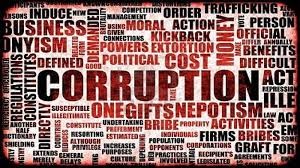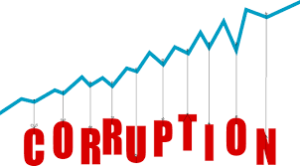Corruption and Foreign Government Institutions
 The FCPA can create a very one-sided view of corruption. The bribe payer is punished and most times the recipient is not. The Justice Department has used creative approaches to ensnare recipients as in the Direct Partners enforcement action, but for the most part the recipients are not punished nor even publicly identified.
The FCPA can create a very one-sided view of corruption. The bribe payer is punished and most times the recipient is not. The Justice Department has used creative approaches to ensnare recipients as in the Direct Partners enforcement action, but for the most part the recipients are not punished nor even publicly identified.
Bribery demands can occur in a variety of contexts; sometimes they are real and other times they can be individual scams that carry to government action to carry out the scheme. International institutions have been fighting corruption from the other side – from the demand side.
The causes of corruption in government institutions can vary widely. From an institutional perspective, public officials who have wide authority, no accountability and perverse incentives are often found at the center of corruption-infested government institution. The more authority a public official has over an activity, the more opportunities exist for corruption.
It does not take a rocket scientist to figure out that if a public official is underpaid, or unrewarded for conduct, or feels insecure in their job, there is a greater risk that the official will engage in corruption to advance their private interests over any concept of public service.
A perfect example of corruption risks is the healthcare industry in many foreign countries where professionals are underpaid and unappreciated. As government employees, healthcare professionals view themselves as seriously underpaid and therefore are more willing to engage in bribery to supplement their income.
It is no coincidence that the US enforcement agencies have conducted an industry sweep against pharmaceutical and medical device companies for paying bribes to foreign healthcare professionals. The demand and supply have increased for bribery in this industry, particularly in those countries where government officials have broad authority over large purchasing decisions.
A public sector employee’s motivation to comply with the law and work productively can be undermined by a number of factors, including low salaries, promotions that are not awarded based on performance, and the underlying culture of the institution. If the government’s budget is delayed or inconsistent, and the employees have inadequate resources and support, the employee’s motivation to remain honest can quickly dwindle. If senior officials at the institution are perceived to secure private benefits from relationships with outside parties, the employees are likely to ignore expectations of honesty and trustworthiness in the performance of their jobs.
In many foreign countries, the government plays a significant role in the overall economy. That is a very big risk factor – in China for example, approximately 75 percent of the economy is owned by the government.
Foreign governments that operate with transparency are less likely to suffer corruption. Strengthening oversight and accountability of government officials can dramatically improve government operations.
The technology revolution and the Internet offer governments a chance to reduce red tape and potential interactions that can lead to bribery. In the same way that the Internet has created efficiencies for businesses, the government can use the Internet to reduce opportunities for corruption, especially in procurement, taxation and other risky interactions where government officials may have authority and discretion over financially significant transactions.
 As an example, Chile has used technology to create a transparent public procurement system for purchasing and hiring. It has earned a world-class reputation for excellence and efficiency. It has led to businesses relying on technology and implementing Internet-based operations.
As an example, Chile has used technology to create a transparent public procurement system for purchasing and hiring. It has earned a world-class reputation for excellence and efficiency. It has led to businesses relying on technology and implementing Internet-based operations.
I have only scratched (a small one at that) the surface of this issue. There is a considerable body of research and writing in this area that focuses on identifying the factors that lead to corrupt conduct from the demand side. More work is needed, and with the support of many international organizations, we should all expect to face continuing challenges in fighting corruption from within all foreign (and domestic) government institutions.















This article highlights some interesting technical initiatives for preventing corruption. However, the enforcement of legislation designed to raise accountability and transparency of senior public officials & politicians is key to longer term success. Independent institutions, rooted in a countries constitution who have control of their own budgets and the executive powers to deliver are crucial to ensuring there are consequences. Implementing these reforms rely on the political will to do so!